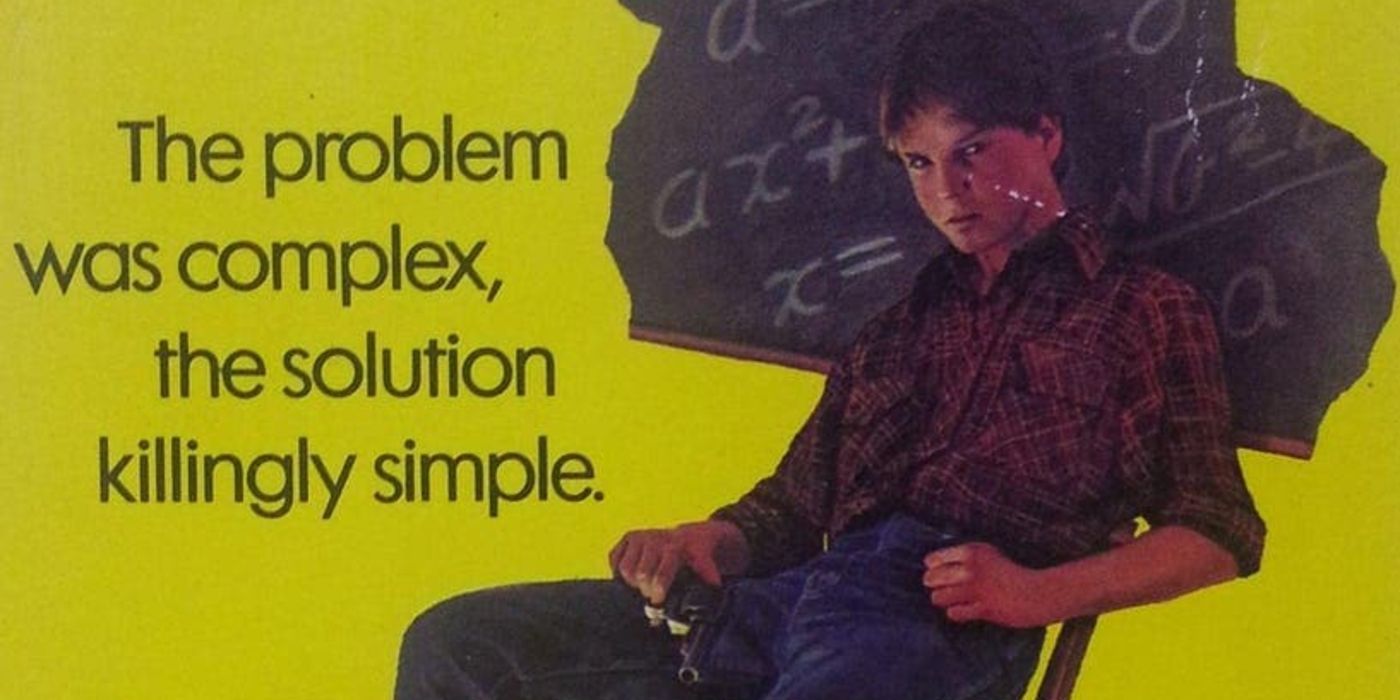
Rage is perhaps one of the most controversial stories from prolific author Stephen King, and one of the only stories he’s allowed to go out of print. As it explores the mind of a school shooter and allegedly inspired several real-life shootings in the 1980s and '90s, King made the decision to let it go out of print. He then went on to publish a non-fiction essay about gun control in 2013.
Following the deeply troubled high school senior Charlie Decker, Rage details Charlie’s expulsion and subsequent decision to shoot several teachers and hold a whole classroom of students hostage. The story is told with Charlie as the narrator and explores his psychology and motivations, especially the childhood abuse he experienced at the hands of his father. As more students start identifying with Charlie, he unwittingly turns his class into a sort of psychotherapy group, as everyone starts to tell embarrassing secrets regarding themselves and each other.
While the story is certainly not advocating school shootings, the topic is an incredibly sensitive one in the United States, and as such, Stephen King decided it would be best to let the story die. However, Rage is a horror story and an incredibly well-written and emotionally affecting one at that. It deserves better than to be locked away for no one to read and enjoy due to its graphic content, especially since graphic material is a staple of the horror genre.

While it’s certainly understandable that Stephen King would want to take a story that could potentially cause more violence off the shelves, there are plenty of other depictions of school shooters in modern media from movies like The Dirties and We Need to Talk About Kevin to TV shows like American Horror Story and even Degrassi.
Of course the most important consideration is peoples’ lives, but horror stories have always held social and political discussions to allow people to tackle difficult subject matter in a safe, non-threatening way. Simply breaching a controversial topic is not a reason to remove a story; the important part is to consider the implications. Through this lens, Rage is very clearly about the familial cycle of violence and how teens and young adults become radicalized to violence through abuse and ostracization. All of these topics are not only clearly ideas that have been explored in other media, but are also areas that are important and deserve more attention. This is especially pertinent in the United States, as school shootings and violence continue to rise and online radicalization becomes increasingly dangerous.
If Stephen King decided to bring back his controversial story, it could be a great tool to use to bring awareness to these types of problems. Perhaps Rage could be republished in a volume alongside a collection of essays from experts about school violence, psychology, bullying, and abuse, and gun control, including King’s own essay, “Guns.” Another great move would be to donate all proceeds from the book’s sale to different charities who help prevent violence in schools or assist survivors of school shootings.
There are quite a few ways that the story could be used to bring attention to a much-needed area of concern in the American school system, and also help people reading it to better understand the mind of someone in distress. Increased insight leads to better coping mechanisms and improved relational skills, which can be a big help with both adults and teens alike struggling to find common ground. Despite its controversial subject matter, Rage explores important topics about abuse, survival, and the cycle of violence that deserve to be read and understood. The poignant story of Charlie Decker highlights the need for greater understanding and resources for children and teens, and could be a brilliant tool for inciting change in addition to being a compelling read for horror fans, and fans of Stephen King.
from ScreenRant - Feed https://ift.tt/37d8QEk

0 Comments